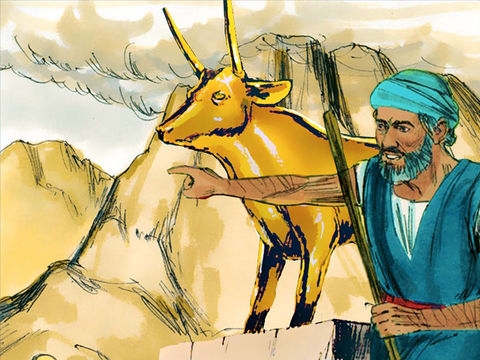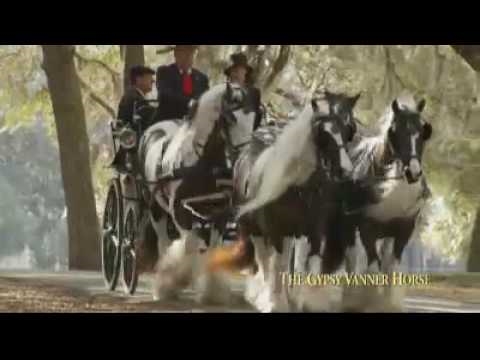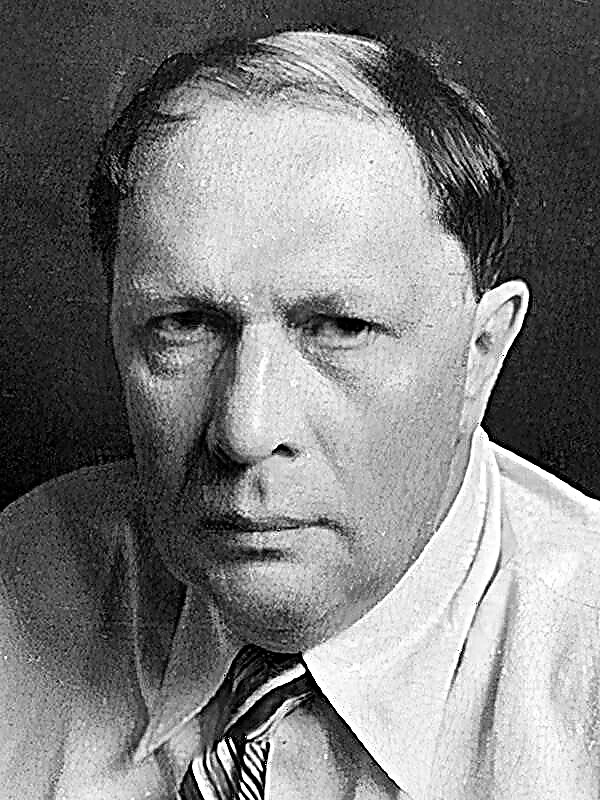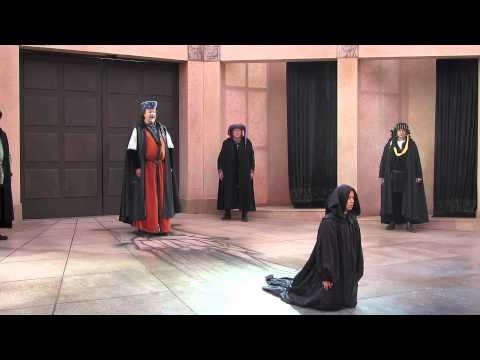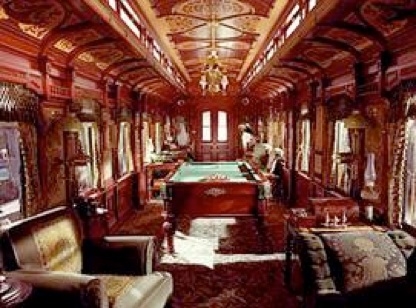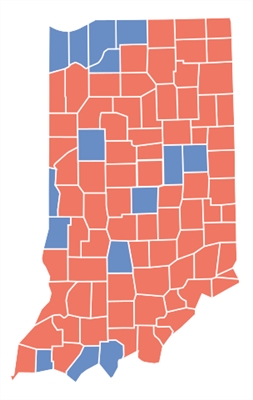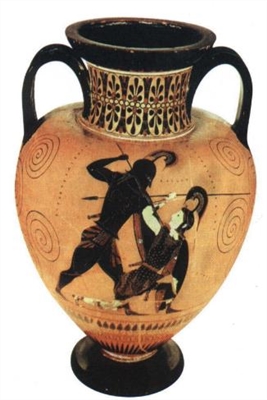Peasant and Death
In the cold winter, the old peasant picks up a fallen tree and, groaning, carries it into his smoky shack. Stopping on his way to rest, he drops a bundle of firewood from his shoulders, sits on it and begins to complain about fate.
In a speech addressed to himself, the old man recalls what he suffers from, how he was tormented by “pillow, boyars, dues”, that in all his life he had not a single happy day, and in despondency he called his death.
At that moment she appears and asks: “Why did you call me, old man?”
Frightened by her severe appearance, the peasant quickly replies that it’s only then that she helps him to raise his bundle.
This story clearly shows: no matter how bad life is, dying is even worse.
Oak and Reed
Once Oak in conversation with Trostinka sympathizes with her: she is so thin, weak; she slopes beneath a small sparrow, and even a slight breeze sways her. Here he is - he laughs at the whirlwinds and thunderstorms, in any bad weather he stands straight and firm, and with his branches he can protect those who grow below. However, Reed does not accept his pity. She claims that the wind, although it bends it, does not break it; Storms haven’t hurt the oak yet, it’s true, “but - wait for the end!”
And she did not have time to utter this, as a ferocious aquilon flies from the north. The reed falls to the ground and thereby escapes. The oak tree holds, holds ... however, the wind doubles its strength and, roaring, uproots it.
Dove and Ant
One day, a young Pigeon flies into the stream in the midday heat to get drunk and sees in the water the Ant tearing off the stalk. The poor thing is floundering with all her might and is about to drown. Good Dove breaks the shoot of grass and throws it to the Ant; he climbs a blade of grass and thanks to this is saved. In less than a minute, a barefoot tramp with a gun appears on the stream. He sees the Dove and, seduced by such prey, aims at it. But the Ant comes to the rescue of a friend - he bites the tramp at the heel, and he, crying out in pain, lowers his gun. But the Dove, having noticed the danger, safely flies away.
Cat turned into a woman
Once upon a time there was a certain eccentric who passionately loved his cat. He cannot live without her: puts him to bed in his bed, eats with her from the same plate; finally, he decides to marry her and prays for Fate to turn his cat into a man. Suddenly a miracle happens - a beautiful girl appears in place of her pussy! The eccentric is crazy for joy. He does not get tired of hugging, kissing and caressing his beloved. She, too, is in love with him and answers her marriage proposal with consent (in the end, the groom is not old, handsome and rich - no comparison with a cat!). They hurry down the aisle.
Here the wedding ends, the guests disperse, and the young are left alone. But as soon as the happy husband, burning with desire, begins to undress his wife, she breaks out and rushes ... where? under the bed - there ran a mouse.
One cannot exterminate a natural disposition.
Body members and Stomach
In this fable, the author talks about the greatness of kings and their connection with subjects, using the comparison with the stomach for this - the whole body feels whether the stomach is happy or not.
Once, the members of the body, tired of working for the Stomach, decide to live only for their own pleasure, without grief, without excitement. Legs, Back, Hands and others announce that they will no longer serve him, and, indeed, stop working. However, the empty Stomach no longer renews blood. The whole body is affected by the disease. It is then that the Members learn that the one whom they considered a loafer was more concerned about their welfare than themselves.
So it is with kings: it is only thanks to the king and his laws that each person can safely earn his bread.
People once complained that honors were given to the senate, and they only got taxes and taxes, and they began to rebel. But Menevius Agrippa told them this fable; all recognized the justice of his words, and the popular unrest calmed down.
Farmer and Shoemaker
The rich Farmer lives in lush mansions, eats sweetly, drinks deliciously. His treasures are innumerable; he gives banquets and feasts every day. In a word, he should have lived and enjoyed it, but the trouble is that the Buyer does not succeed in getting a good night's sleep. At night, he cannot fall asleep, either because of fear of ruin, or in grievous thoughts about God's judgment, and he also doesn’t get a nap at dawn because of his neighbor’s singing. The fact is that the poor man lives in the hut next to the mansions a shoemaker so funny that he sings incessantly from morning to night. What is there to do to the Buyer? To tell the neighbor to shut up is not in his power; requested - the request is not valid.
Finally he invents and immediately sends for a neighbor. That comes. The farmer affectionately asks him about life. The poor man does not complain: there is enough work, the wife is kind and young. The farmer asks if the Shoemaker wants to become richer? And, having received the answer that wealth will not hurt any person, he hands the poor man a bag of money: "you fell in love with me for the truth." The shoemaker, grabbing the bag, runs home and that night buries a gift in the cellar. But since then insomnia has begun in him. At night, the Shoemaker is disturbed by any noise - everything seems to be a thief. Here the songs do not go to mind!
In the end, the poor man returns the bag of money to the Farmer, adding: "... You live with your wealth, And I don’t need a million for songs and for sleep."
Lioness's funeral
Leo's wife died. Beasts, to express their sympathy for him, gather from everywhere. The king of animals cries and groans throughout his cave, and, echoing the ruler, the court staff roars for thousands of frets (this happens in all courts: people are only a reflection of the king’s moods and whims).
One Deer does not cry for the Lioness - it at one time ruined his wife and son. The court flatterers immediately inform Leo that the Deer does not express proper grief and laughs at universal grief. The furious Leo tells the wolves to kill the traitor. But he declares that the deceased queen, all radiant, appeared to him and ordered not to sob over her: she tasted thousands of pleasures in paradise, knew the joys of the blessed chamber and was happy. Hearing this, the whole court unanimously agrees that the Deer had a revelation. A lion with gifts lets him go home.
Masters should always be amazed with fabulous dreams. Even if they are angry with you, flatter them and they will call you their friend.
Shepherd and king
Our whole life is controlled by two demons, to whom weak human hearts are subordinate. One of them is called Love, and the second - Ambition. The possessions of the second are wider - sometimes Love also is included in them. You can find many examples of this, but in the fable we will talk about something else.
In the old days, a certain reasonable King, seeing how, thanks to the care of the Shepherd, the herds of the past year are multiplied and bring a fair income, calls him to himself, says: “You are worthy to be a shepherd of people” and bestow upon him the title of supreme judge. Although the Shepherd is uneducated, he has common sense and therefore judges fairly.
Once the Hermit visits the former shepherd. He advises the friend not to be entrusted with the monarchy of mercy - she caresses, threatening disgrace. The judge only laughs carelessly, and then the Hermit tells him a parable about a blind man who, having lost his scourge, found a frozen Snake on the road and took it in his hands instead of a whip. In vain did a passerby persuade him to abandon the Serpent - he, convinced that he was being forced to part with a good whip out of envy, refused. And what? The snake, warming up, stung the stubborn man in the arm.
The hermit is right. Soon, slanderers come to the King: they assure that the judge only thinks about how to get rich. After checking these rumors, the King discovers that the former shepherd lives simply, without luxury and splendor. However, the slanderers do not relent and insist that the judge must preserve his treasures in the chest for seven seals. In the presence of all the dignitaries, the King orders the judge's chest to be opened - but there they find only old, worn-out shepherd's clothes, a bag and a pipe. Everyone is confused ...
And the Shepherd, having put on this clothing that does not arouse envy and offense, will forever leave the judiciary. He is pleased: he knew the hour of his power and the hour of his fall; now the ambitious dream has disappeared, but "who among us does not have ambition, even to the smallest extent?"



